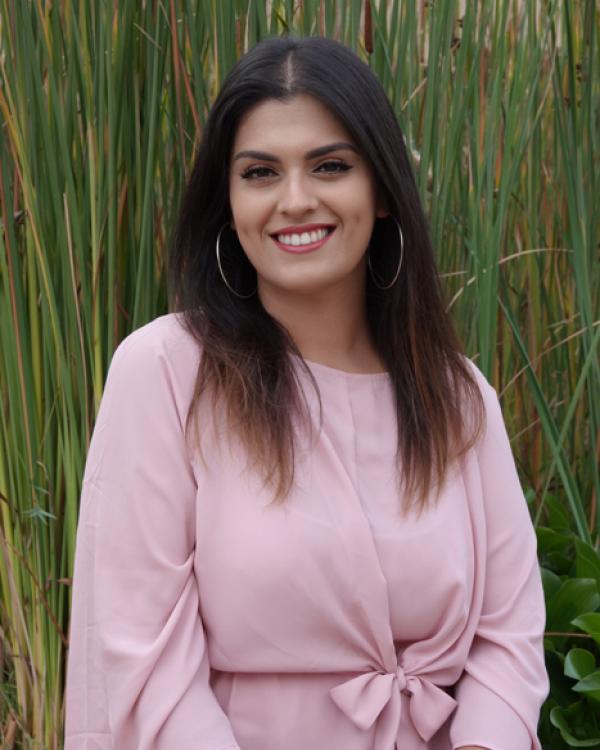
Like many of her peers, Adriana Sánchez’s journey to UCSB was not without adversity. After graduating high school in Simi Valley, she enrolled at Cal State Monterey Bay but found herself struggling with being so far away from family. “I experienced culture shock and homesickness and knew it wasn’t the right place for me,” she recalls. So she moved back home and continued to pursue her education by enrolling at Moorpark Community College.
While at Moorpark, one of her psychology professors—Julie Campbell, who received her PhD from UCSB in 2007—noticed Adriana’s academic potential and offered her a position as a TA. Sánchez says, “She believed in me and when I was applying as a transfer student, she was the one who encouraged me to apply to UCs.”
After successfully transferring to UCSB, Sánchez was accepted into the McNair Scholars Program which prepares first-generation, low-income and/or underrepresented undergraduates for entrance to a PhD program. As a McNair Scholar, Sánchez had the opportunity to pursue her own research interests. “I wanted to know how people overcome difficulties because I had to overcome difficulties to get here,” she explains. “Why are some of us [Latinx transfer students] successful and others not?”
When she was applying to graduate programs, she felt the Gevirtz School and Dr. Melissa Morgan Consoli’s research team was a perfect fit: Dr. Morgan Consoli is an Associate Professor in the Department of Counseling, Clinical, and School Psychology and her research includes the areas of resilience and thriving and their relationship to cultural variables with an emphasis on Latinx populations.
Sánchez continues to examine these questions through her research as a third-year doctoral student at the Gevirtz School but also through her work with the Transfer Student Center (TSC). Founded in 2016, the TSC provides a place for transfer students to study, meet other students, talk with peer mentors, connect with campus resources, and build a shared community of support and learning. Sánchez, as the Graduate Student Mentor in which she is able to work collaboratively with the Center’s professional and student staff on a variety of programs and initiatives aimed at creating a support system so that transfer students can have maximal opportunity to thrive at UCSB.
Through her research, Sánchez hopes to shed light on what we can learn from transfer students and their experiences overcoming adversities to inform the programs and support systems on college campuses. Although Latinx students are the largest minority population enrolled in community colleges in California, this population has a low transfer rate to four year institutions and lower rates bachelor degree attainment when compared to other ethnic/racial student populations. “There are a lot of barriers that have been documented in the literature as to why this population does not do well in higher education,” she makes clear, “but I am interested in how these students who have faced difficulties in the context of their academic lives and are still persisting and actively managing these obstacles.” Some of what she’s learned through her own experience and research points to the importance of mentoring from peers, faculty, and staff, and to addressing cultural considerations such as how pursuing education may affect a student’s relationship with their family back home (ex. cultural variables such as familismo).
Sánchez is interested in further exploring this dynamic between transfer students and their families in the future. Recently, she was selected to join the Dean of Graduate Division Carol Genetti for Graduate Research Advocacy Day, a UC-wide initiative that gathers graduate students from each campus and sends them to Sacramento to educate legislators about the importance of graduate research and it contribution to California’s economy and progress. Sánchez is excited to share the results and implications of her research with local lawmakers.
What helps Sánchez stay resilient throughout this academic journey? “Spending time with my family is so important and I couldn’t be happier to be able to research and support this population,” she says. “The transfer students I have met and mentored inspire me and sometimes research is ‘me-search’, and that keeps me motivated.”